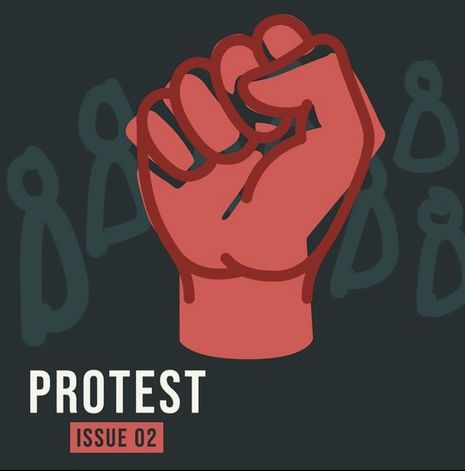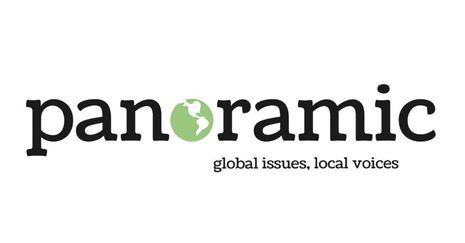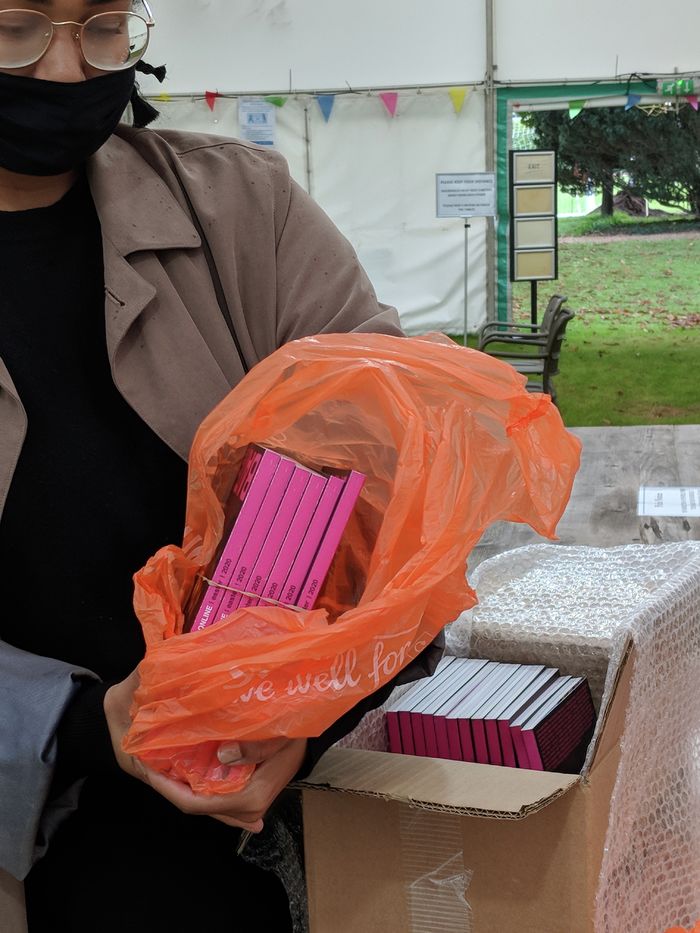Behind the zines: A term in the life of Panoramic the Magazine
As part of our series featuring Cambridge-based zines, Anna Begley, Lead Writer at Panoramic the Magazine, describes the experience of launching a magazine in Michaelmas term 2020.

Over the Christmas break, in between all the mince pie eating and Camfess reading, I had the opportunity to reflect back on Michaelmas term 2020, the term in which Panoramic the Magazine made its debut. This magazine was conjured up in the imaginations of our co-founders, Anya and Maddie, before I got involved. Having lived abroad in Kenya and China respectively, they came up with the idea of bringing a conglomeration of perspectives from across the world into a single issue. This project has aimed to foster a global community among our generation, which tends to rely on social media and microblogs to receive its news. So far, we have released two issues, 01 on the ‘Brain Drain’ and 02 on ‘Protest’. These have facilitated an increasing diversity of insight and – at least in my view – have been eye-opening.
“Although we have distinct roles by name, in practice we help out in as many ways as we can”
As is often the case with imagination, Anya and Maddie thought theirs had run away with them in terms of bringing the magazine to fruition. There were many moments when they thought it was simply not going to happen, with many bumps in the road when they realised that their initial name idea ‘Panorama’ had unfortunately already been copyrighted by the BBC. However, since bringing in a few recruits, myself included, the magazine has well and truly gotten off the ground. My role, for instance, has been writing template articles to inspire our writers, as well as editing drafts; another of the recruits designed the website and has been heavily involved in the aesthetics of Panoramic. With this manpower onside, the first issue took just over a month to reach publication.

We now have a writer’s community on Facebook called Panoramic the Collective made up of over 160 student writers from across the globe, a number we are ever hoping to increase (a not-so-subtle nudge for you to join if interested!). This community is on standby to write articles for any issue they find particularly interesting, as members can simply pitch an idea and the collective process begins. This concept of collaboration is prevalent throughout our work at Panoramic: we work with our writers over a month-long period, drafting and editing to create the best issues possible. It ultimately becomes a process of investment on both sides, and our team dynamic works by this ethic as well – although we have distinct roles by name (editor, writer, tech-manager), in practice we help out in as many ways as we can, or even in ways that we can’t (my first attempt at designing the PDF version of the magazine was one such example)!
“Reading the short articles written by my peers has provided a welcome distraction from all the chaos and uncertainty”
To truly begin to create a global magazine, we have formed a partnership with The Phoenix Daily, a Lebanese magazine with which we share writers and ideas. As we grow, we are hoping to form more ties with other university-led magazines so that we can create a fluid, global community of perspectives and really work to de-centre western narratives; the ideas of ‘where power lies’ and ‘whose knowledge counts’ have already been explored in our first two issues. For example, in our second issue, one writer discusses the differing portrayals of the Hong Kong protests by Western and Asian media, and how this political framing often neglects the lived experiences of the citizens on the ground. These kinds of narratives will undoubtedly rear their heads again in our upcoming issue on ‘Queer Culture’ (and beyond).
As with most societies this year, we have been communicating online since the pandemic swiftly brought an end to our in-person meetings (one out of two of which I had already missed due to isolation). I am sure everyone has become well acquainted with this online experience by now, and given that we were building an online magazine, our task was fairly breezy in comparison to other situations. What I would say, however, is that face-to-face meetings are important (whether this be on Zoom, FaceTime etc.), as they help feel connected to the project and the people involved to a much greater extent than the rather impersonal chat function.
Having this little community has really helped me to stay engaged and motivated throughout lockdown; collaborating and reading the short articles written by my peers has provided a welcome distraction from all the chaos and uncertainty. The buzz of energy nearing the time of publication has been particularly welcome and I would encourage everyone to get involved in something like this while at Cambridge, especially as it has only improved my studying.
If you fancy an instant and low-commitment distraction from day-to-day life, I would recommend visiting our website (designed by the amazing Maddie and Lachlan). It is actually pretty cool – an unbiased opinion, of course.
 News / Colleges charge different rents for the same Castle Street accommodation2 March 2026
News / Colleges charge different rents for the same Castle Street accommodation2 March 2026 News / News in Brief: waterworks, wine woes, and workplace wins 1 March 2026
News / News in Brief: waterworks, wine woes, and workplace wins 1 March 2026 News / Climate activists protest for ‘ethical careers policy’1 March 2026
News / Climate activists protest for ‘ethical careers policy’1 March 2026 News / Angela Merkel among Cambridge honorary degree nominees27 February 2026
News / Angela Merkel among Cambridge honorary degree nominees27 February 2026 News / Private school teacher who lied about Cambridge degree barred from teaching27 February 2026
News / Private school teacher who lied about Cambridge degree barred from teaching27 February 2026









